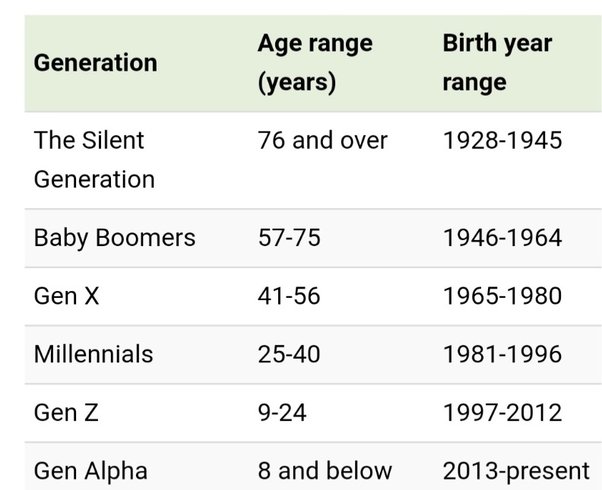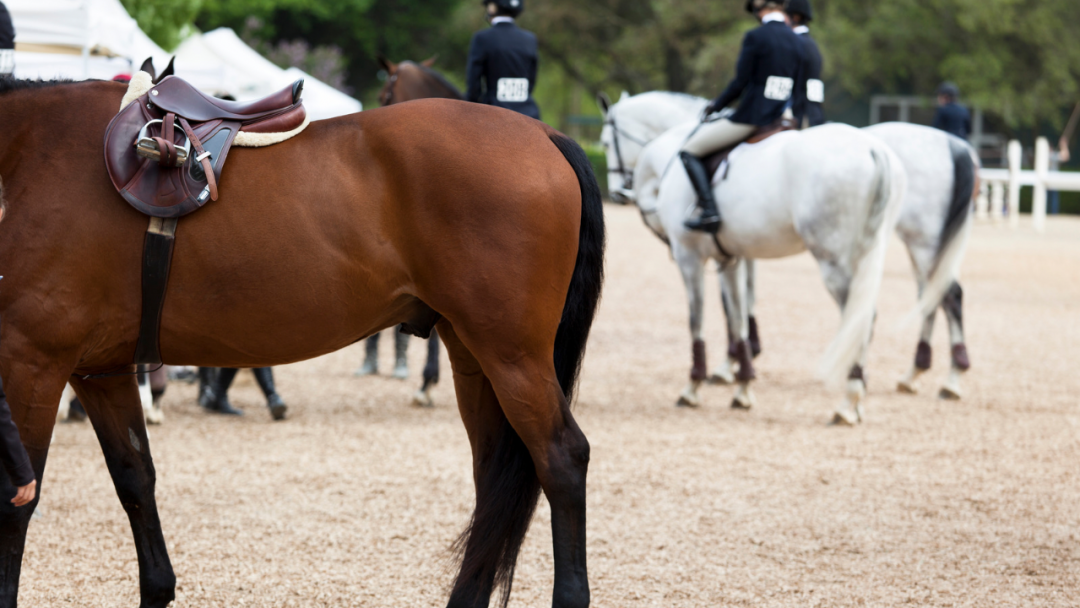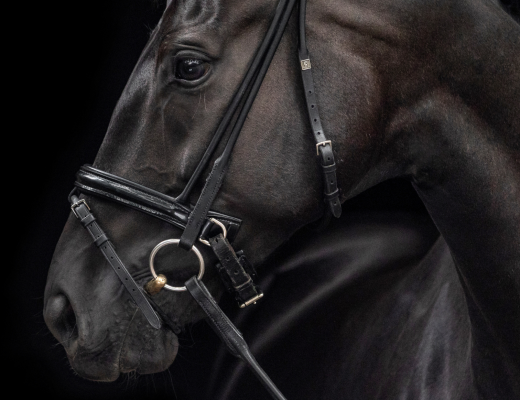There has been a lot of debate recently about shortage of ‘good’ groom’s, verses poor working hours and pay. And that’s just the tip of the iceberg. Contary to what some people think, there ARE hard workers amongst Generation Z, but they were born and raised in a different environment to us millennials and generation x’s. If you want to recruit and retain great employees, it helps to understand and embrace the diverse and savvy generation. Gen Z are willing to work hard, but in return they expect a supportive employer who enhances their work life balance.

What does this look like in the workplace, and how does it translate to the equine industry
Gen Z’ers seek a supportive boss who values the well-being at work. This generation are significantly more likely to seek professional help for mental health issues than past generations. They experience higher levels of anxiety and depression than older generations and will therefore expect and want employers to have support available for them, should they need it. It is difficult in the equestrian industry when staff are off sick due to wellness reasons. The horses cannot be put off to another day like an office job.
SOLUTION
- Have regular check ins with your staff to potentially reduce the likeness of them needing unplanned days off. These check ins should include asking if there’s anything they are struggling with, e.g. The daily workload, work relationships, health/ home life.
- If you have regular interaction with your staff, be aware of their mood state, and address it accordingly, don’t just presume an employee is being difficult or slacking, put yourself in their shoes and understand why they may be out of sorts.
- Have self-care packages and incentives. Such as paid breaks for meditating, or reward based incentives like a spa treat for every 10 stay away show they attend.
- Offer health insurance as an extra perk.
Flexible working, Gen Z a so diverse they are constantly multitasking. As horse people, we are wired to believe that horse jobs are ‘just long hours’. A groom’s average hours can be 6 days a week from 7am to 6pm and that’s not even including longer hours when at shows. With social evolution, this will become a thing of the past, just as the slave era is, which was abolished over 150 years ago.
SOLUTION
- Reduce the risk of burnout and negative working attitude by offering shorter blocks of working days. Such as a 4 day week or rolling rota – 3 full days, 3 half days, 2 days off works well with the right amount of staff.
- Ensure staff have some time off at weekends and during the week each month.
- Have a good workload management system. We can use the care industry as an example of how the management of staff handover can work well. Have daily reports for each horse, their daily activity, whether they were in field, hacked, jumped, etc any heat or swelling, changes in behaviour, medications. This way the next staff shift can monitor the horses welfare effectively.
- Allow staff a level of autonomy to create their own schedule that gives them a work-life balance. Fitting in work around school runs or with their partners working hours.
- Leaves and sabbaticals. Authorised periods of time away from work for family or leisure reasons.
Gen Z’ers haven’t known a world without the Internet. They are therefore accustomed to having information at their fingertips and used to instant, virtual connection, which they routinely use to form and build relationships. Employees therefore need to provide the platforms and opportunities that enable them to quickly access information and establish virtual connections while at work.
SOLUTION
- Make your business media friendly
- Recognise employees on social media. Include your staff in daily Instagram story updates
- Allow them to take and upload content to your business social media. Alternatively include them in the posts and tag them. Gen Z love exposure!
- Be tech savvy and the coolest yard, have an app for your yard.
- Boost your social media followers.
- Include them in branding and promotions
- Encourage group chats.
- If you’re not with your staff regularly, have virtual coffee chats and lunches.
- Share content and updates which are relevant to your employees.
- Help employees with content they want to share.
Gen Z’ers are passionate about solving the world’s wrongs. They believe in dialogue to solve conflicts and improve the world. Employers must therefore have a strong sense of meaning in what they do, enabling employees to feel as though they are benefiting society. For this new generation, it is not enough for their employers to simply have a personal purpose. They want to know their own purpose within a company that has a beneficial reason for existing.
SOLUTION
- Know your ‘why’. All equestrian businesses and brands already have a ‘what’ and ‘how’. But what is your ‘why’. Especially if you employ staff just for personal pleasure, think about what positive impact you can have on others? Can you donate to or promote a good cause? Can you advocate something you feel passionate about that helps others?
- Make work matter. Ask your staff what their sense of purpose is. Asking this question can unlock surprising motivations in their role. Rather than saying they ‘groom horses’, they realise they actually ”are the driving force behind the welfare of the horses that will be remembered in history for breaking world records, inspiring younger generations and growing the equestrian industry in its hundreds of million pounds’.
- Give Gen Z employees a chance to put their ideas forward too. They want to make a difference, both to society as a whole and to their place of work.
Learning and development opportunities. Gen Z want to learn at work. They are keen to be mentored in the workplace and learn from their peers. They are also attracted to employers who offer training reimbursement. Generation Z want to know how their career will progress with an employer. Are there opportunities for promotion or movement across functions? What do they need to do to move into a leadership role?
SOLUTION
- Employers need to provide a clear picture of learning and development opportunities. Are there any promotions available?
- Have a price increase structure, based on their time with you. Set it above the national minimum wage.
- Equine based incentives that may also benefit you. Such as HGV licence, equine first aid, stable management.
- Learning development courses of their choice. This could be online based, intensive day or week courses, or 1 college day per week.
- Ask your staff what their weaknesses are and what they would like to improve on. Support those goals. Wether it’s offering them coaching on lunging, riding, plaiting, or social skills in general.
Having been born into a world of endless customisation, understandably, Gen Z’ers expect the same level of personalisation at work.Whether users are listening to Spotify, watching videos on YouTube, or browsing Facebook, they are provided with a customised experience based on their history and preferences. Ads are targeted and newsfeeds are personalised.
SOLUTION
- Cater for each employee’s personal goals, strengths, and weaknesses. Through a benefits platform, employers can offer their staff a unique and personalised experience, which is crucial when trying to engage Generation Z. The challenge for employers is to offer support, flexibility, and benefits on an individual basis.
- There are endless benefits you can offer, tailored to your own staff. Here’s a few ideas…Employee recognition awards, family friendly offers (for those with children) pet insurance (if they have animals of their own), time off incentives, house cleaning package (time saving treats for them), stress relief- yoga classes (encouraging wellness) physiotherapy (keep them fit and healthy) clothing.
The involvement of generation z is essential to the survival of the equestrian industry, and consistently highlighting their dedication and hard work is a necessity. Luckily organisations such as the international groom’s association and Equestrian Employers Association have been launched to support the new era.
Without your staff, you can’t do what you do, it’s as simple as that.
Break it down. How much will this cost the employer financially and practically, and how do you balance this
Do you know your employees rights? Firstly, familiarise yourself with working conditions, minimum pay and working hours. If you cannot afford to pay your staff the minimum wage for the actual hours they work, then you should be figuring out how you are going to earn the extra money to pay them. It is not acceptable to not be employing staff within the law.
Follow these pointers to make sure you are recruiting and retaining the best staff of Gen z.
Why take my word for it?
I worked as a National and International show jumping groom for over 10 years, including Olympic rider Eric Lamaze, Kim Barzilay, Simon Davies, and Graham Lovegrove, but this was 20 years ago. Back then it was a privilege to travel the world, at my employer’s expense, and learn valuable life experiences. My years working as a groom was a huge step in my self-development. I learnt to work hard, fast, and clever. I built confidence, independence, experience, and friends. Was it long hours? Yes. Was it poor money? Mostly, yes. Would I do it all again? Absolutely. Would I do it now in this era? Absolutely not. I can completely see where new employees are coming from.
Ive also worked at a variety of other stables including Riding school and livery yard, dressage and Arab race horse stables. Ive worked on many yards, and been to many stables, seeing a variety of management systems. Ive also worked in the corporate industry and ran my own business employing staff for over 10 years.
Although several of my groom jobs were well paid, had free accommodation and company cars, I still had limited time for myself outside of work. Personally, my reasons for leaving the industry were simply that I needed my own time, I couldn’t progress with my life without this. Therefore, I made the decision to venture off and started my own family, learnt new skills, leading to building my own businesses and owning our own properties. Something I couldn’t have done if I continued to groom full time.
Ive seen the equestrian and non equestrian industry evolve over 25 years, and I admit I used to be one of those who said ‘they don’t work as hard as we did back in the day’. But we aren’t ‘back in the day’, and I fully support the commitment we face to ensure our younger generations (including my daughter) have a healthy work life balance.




No Comments